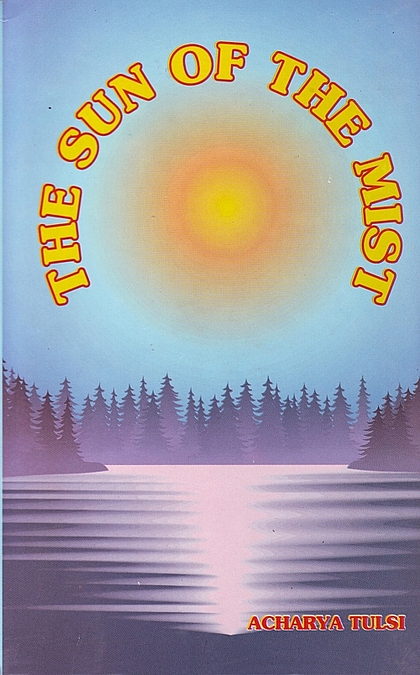The Soviet Festival in India is very much in the news a delegation of 200 Soviet youths is in the country. By December, this figure would probably go up to 500. During their stay, the foreign visitors will study the life-style, the culture and the creative influences at work in India. At the same time, they will acquaint the people of India with the great vitality of the Russian people, their creative power and art. For the first time in the history of independent India, it is averred, an organised effort is a foot to exhibit here the culture and creativity of another country.
Also began in June this year, the programmes of the Festival of India in the Soviet Union, which are still continuing. About 500 Indian youths had thus an opportunity to go to Russia. They visited Moscow, Leningrad, Tashkent, etc. The earlier Festivals of India sponsored in 1985 took the Indian culture, art and science to various countries, eliciting keen interest everywhere.
Such festivals serve to bring different nations together, to foster friendly contacts and strengthen political and economic ties, besides providing a mutually beneficial exchange of one an other's technology. However, we have far greater objectives in view, involving cultural and spiritual values whose exchange can lead to the evolution of an altogether new way of living. While giving his personal response to the impact of the Indian Festival organised in America, Dr. Victor, J. Danilov, Director, Science and Industry Museum, Chicago, says, "Not only has India provided us with imaginative view of our science and technology, but she has also greatly contributed to a mature appreciation of our literature aesthetics and abstract thought...we have much to learn."
There is every possibility of similar responses to the Festival of India being currently held in the Soviet Union, because the Soviet people are inquisitive, sensitive and highly receptive. The imperishable wealth of spiritual knowledge in India attracts everyone's attention. There was a time when India exported, not only material things, but also these eternal values. Today when hundreds of Russian youths happen to be in India for a particular objective, is it not incumbent upon the Indian Government and other national and social institutions to acquaint our visitors with the ancient culture of our country? Of course, this young person have come here to display their own artistic power, but is it not most desirable to utilize this occasion to leave on their minds an indelible imprint of India's ancient civilization?
The Indian visitors to Russia, Japan and other countries come back duly impressed by the commitment to work displayed by the inhabitants of those countries, their sense of duty, their uprightness and general cleanliness. Do the Indian people wish to appear to be lacking in these virtues? If not, how do we explain various incongruities in their way of living? If the people of this country are steeped in poverty, why do they shirk work? If the people of the country are starving, why are millions of rupees spent on cosmetics? If the country is afflicted with terrible droughts, why do we permit unbridled exhibition of luxury? If the people of the country are duty-loving, why do they fight Shy of meeting their social and family obligations? If they love honesty, why is corruption so rampant? If they love cleanliness, how do we explain the pervading dirt? Thoughtful people all over the country are deeply concerned about these problems. An objective appraisal of the current situation in the country is urgently called for. This is no time to find fault with or humiliate, mislead or accuse one another. But it is high time we see ourselves as we are with a view to clean our public life. It is time to start building a glorious future for our country. However, if the present remains unreformed, how can we really hope for a better future?
Instead of indulging in tall talk about high ideals, we must attend first and foremost to general cleanliness. While Indian visitors to Russia encounter not a speck of dirt on the pavements of a Russian town, how do the roads of our own capital appear to the Russian tourists? Virtually littered with dirt, pieces of stone, glass, paper and discarded skins of various fruits! Clotted with spit from innumerable mouths! All kinds of muck and disease—spreading germs and banana peels which send an unwary pedestrian go skidding! ls this the standard of our national progress?
If such is the state of affairs in the capital of our country, what crass backwardness may not one expect to find in our villages? The present situation is not only indicative of a serious lack of aesthetic sense in our countrymen, but also it denotes an utter lack of morality.
Here we encounter a kind of moral degradation that gets transmitted from one generation to another. If not for the improvement of their own life and the lives of the succeeding generations, the Indian people, yet, own it to the visiting tourists to leave upon their minds a good impression, and if, even with this limited objective in view, the Indian people decide to preserve their cultural and moral values, it would certainly help to improve the image of their country abroad. Otherwise, some foreign visitor might carve the barren landscape of our public life on the page of history to our lasting shame, demolishing for ever our ancient glory. There is yet time for the Indian people to fully appreciate the value of inner and outer harmony to achieve it and thus to directly experience the good and the beautiful. That is the fundamental essence of our national heritage. Before returning of their country on the completion of the Soviet Festival in India, let the foreign tourist have a glimpse of India's soul; let them become acquainted with it so as to find inspiration for new creative endeavours. Therein lies the real value of such festivals.
 Acharya Tulsi
Acharya Tulsi
